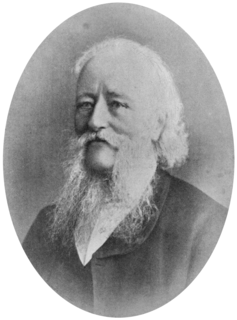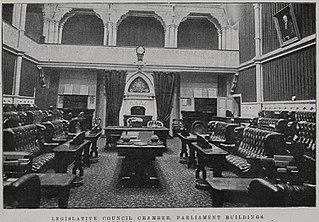
Christopher William Richmond, generally called William Richmond, was a 19th-century New Zealand politician. He held a number of Cabinet positions between 1856 and 1861. He worked as a lawyer and was appointed a senior judge.

Commander Willoughby Shortland RN was a British naval officer and colonial administrator. He was New Zealand's first Colonial Secretary from 1841, after having arrived in New Zealand with Lieutenant Governor William Hobson in January 1840. He was later President of the island of Nevis and then Governor of Tobago.

Sir Francis Henry Dillon Bell was a New Zealand lawyer and politician who served as the Prime Minister of New Zealand from 10 to 30 May 1925. He was the first New Zealand-born prime minister, holding office in a caretaker capacity following the death of William Massey.

"Old Dan Tucker", also known as "Ole Dan Tucker", "Dan Tucker", and other variants, is an American popular song. Its origins remain obscure; the tune may have come from oral tradition, and the words may have been written by songwriter and performer Dan Emmett. The blackface troupe the Virginia Minstrels popularized "Old Dan Tucker" in 1843, and it quickly became a minstrel hit, behind only "Miss Lucy Long" and "Mary Blane" in popularity during the antebellum period. "Old Dan Tucker" entered the folk vernacular around the same time. Today it is a bluegrass and country music standard. It is no. 390 in the Roud Folk Song Index.

Henry St. George Tucker Sr. was a Virginia jurist, law professor, and U.S. Congressman (1815–1819).
William Tucker may refer to:

William Colenso was a Cornish Christian missionary to New Zealand, and also a printer, botanist, explorer and politician. He attended the signing of the Treaty of Waitangi and later wrote an account of the events at Waitangi.

Te Waimate Mission was the fourth mission station established in New Zealand and the first settlement inland from the Bay of Islands. The members of the Church Missionary Society (CMS) appointed to establish Te (the) Waimate Mission at Waimate North were the Rev. William Yate and lay members Richard Davis, George Clarke and James Hamlin.
Octavius Hadfield was Archdeacon of Kapiti, Bishop of Wellington from 1870 to 1893 and Primate of New Zealand from 1890 to 1893. He was a member of the Church Missionary Society (CMS) for thirty years. He was recognised as an authority on Māori customs and language. His views on Māori rights, expressed in several books strongly criticised the actions of the New Zealand Government. Hadfield married Catherine (Kate) Williams a daughter of the Rev. Henry Williams and Marianne Williams.

Sir William Martin was the first Chief Justice of New Zealand, from 1841 until he resigned in 1857.
William Brown was a 19th-century New Zealand politician, merchant and newspaper proprietor.
The following lists events that happened during 1817 in New Zealand.
Foveaux Strait is the centre of attention for sealing ships. Sealing gangs are dropped along the coast from southern Fiordland to Otago Harbour and on Stewart Island/Rakiura. The Bay of Islands is sometimes on the journey to or from Port Jackson. The Chatham Islands are also visited. A few whalers also operate around New Zealand; some also collect timber from Bay of Islands.

William Williams was the first Anglican Bishop of Waiapu. Williams was consecrated as the Bishop of Waiapu on 3 April 1859 at the meeting of the General Synod at Wellington. His son, Leonard Williams was the third bishop of Waiapu and his grandson, Herbert Williams, was the 6th bishop of Waiapu.

Isaac Thomas Cookson (1817–1870) was a 19th-century Member of Parliament in Canterbury, New Zealand. He was a prominent merchant in early Canterbury.
William James Speight was a 19th-century Member of Parliament in Auckland, New Zealand.
George Hepburn was a 19th-century Member of Parliament from Otago, New Zealand. Born in Scotland he emigrated to New Zealand in 1850. He first entered politics by serving on the Provincial Council of Otago from 1855 to 1865 before he was elected to the New Zealand House of Representatives as member for Roslyn in 1866.
The New Zealand Church Missionary Society is a mission society working within the Anglican Communion and Protestant, Evangelical Anglicanism. The parent organisation was founded in England in 1799. The Church Missionary Society (CMS) sent missionaries to settle in New Zealand. The Rev. Samuel Marsden, the Society's Agent and the Senior Chaplain to the New South Wales government, officiated at its first service on Christmas Day in 1814, at Oihi Bay in the Bay of Islands, New Zealand.
John Samuel Edmonds was a New Zealand missionary, trader, stone mason and founding father.











